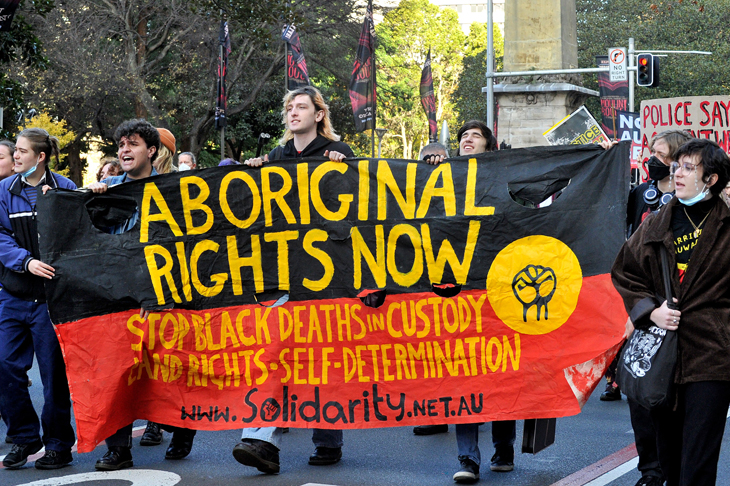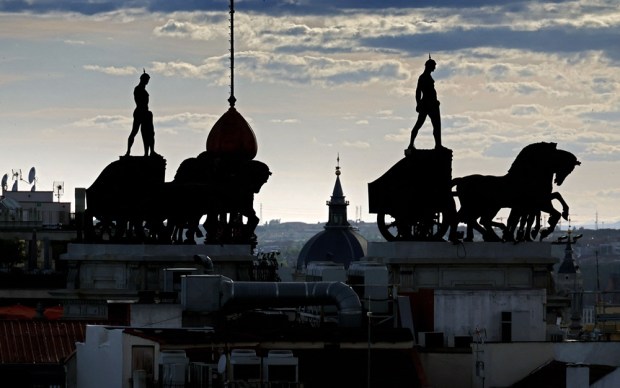There is certainly a right for former judges to put an advertisement in the newspapers extolling the virtues of the proposed Aboriginal Voice, as eight retired judges have just done. It is clearly legitimate for them to express an opinion on this contentious issue. But their arguments should be persuasive before we accept them and in the present case they are not and, with respect, they should be rejected.
First, it would have been a better idea to start with the facts. The Voice proposal is not for a ‘Voice to Parliament’ as is claimed in the judges’ advertisement. On its plain words, it is specifically a Voice to both the parliament and the executive government, with all that the latter half of this vast ambit claim entails. Indeed, the government and the advocates for the Voice have all said that this is exactly what they want, because it gives the unelected indigenous elite an exclusive and reserved seat at the table whenever the government is about to make a decision. Anyone has the right to petition and advocate to the parliament, as they should. But to go further and allow one group of society, and only that group, to have a special and unique entitlement, one that would be embodied in the constitution and denied to everyone else, introduces a new element about which we should be very cautious. It clearly means that the favoured group is to be given a special right to advocate for particular measures and against any decision that the government might make in the interests of the country and the people as a whole.
Secondly, the judges’ argument becomes weaker when they say that the Voice will ‘enrich our democracy’. It cannot enrich our democracy when the only, and non-negotiable, criterion for taking part in the Voice is to be a member of one particular race. If you are a member of the Aboriginal race, you will be included under this new constitutional right; but if you are a member of any other race, you are excluded. That is the very opposite of democracy. Also, it cannot ‘enrich democracy’ when none of the Voice elite will be elected.
Thirdly, it cannot ‘enrich our democracy’ when the proposal is for the Voice to make representations on anything relating to Aboriginals, which is what it is set up to do. What enhances democracy is to have a democratically elected body make decisions on all matters concerning the country and its people including, of course, Aboriginals. We already have such a body and it is called a parliament. It consists of the peoples’ representatives who are called members of parliament. The proposal for the Voice therefore would not enrich our democracy but diminish it, and severely. The judges say that democracy is at its best when ‘all may contribute’, which is absolutely correct. But how can ‘all’ contribute when most of the population will be excluded, and on the monstrous ground of race?
Fourthly, the judges say that opposition to the Voice descends to ridiculous fears such as that Anzac Day will be ‘cancelled’. That has never been suggested. The demand of advocates for the Voice is not that Anzac Day be cancelled, but Australia Day. Worse, they want to rename it Invasion Day, with all the pejorative baggage that such a branding brings with it.
Fifthly the judges have misdirected themselves. They say that the Voice will introduce ‘a degree of flexibility’ into the constitution, which must be the understatement of the century. We are being asked to vote for a new and permanent addition to our governmental structure where the powers of that body are to be kept a secret from us until we fall into line and establish this body in the constitution. That is not ‘flexibility’. It is a formula for chaos. Flexibility is a good thing. But there is only one way of achieving flexibility through constitutional change: by holding a constitutional convention when all alternative proposals can be examined on their merits by a truly representative body.
Then the judges put an even worse argument. They say the Voice is ‘common sense’ and a ‘sensible compromise’. But how absolutely lacking in common sense it is to change the constitution without knowing what the changes will be, as if we were being invited to walk into a darkened room. Is it common sense to create a new body with its own exclusive chapter in the constitution, one that is based solely on race and whether you are lucky enough to be included in that race? I think not.
They casually write this off by saying that the specifics of what we are letting ourselves in for are mere ‘details’ that should be addressed after the referendum is successful. This is misleading, as the word ‘details’ is not mentioned once in the referendum question. What are to be decided after the vote are not details but ‘powers’, the actual word used and the very essence of the proposal. We do not have a clue what those powers will be. All we know is that the powers can be changed after the vote, which is reckless. Will the Voice have power to renew and repeat its representations time and time again until it gets its own way? Will the Voice have power to delay or prevent approval of a development project until it decides whether to make representations or not? Will the environmental lobby be able to frustrate development projects simply because the Voice might want to make representations? Does the Voice’s power over ‘matters relating to Aboriginals’ apply to everything where Aboriginals are concerned, as it seems to do? Surely, we should be given reasonable particulars before we vote, not after we vote.
The No campaign says that if you don’t know, vote No. But I would add that if you do not know exactly what the Voice will do, that is an even better reason for voting No.
Got something to add? Join the discussion and comment below.
Get 10 issues for just $10
Subscribe to The Spectator Australia today for the next 10 magazine issues, plus full online access, for just $10.
You might disagree with half of it, but you’ll enjoy reading all of it. Try your first month for free, then just $2 a week for the remainder of your first year.















Comments
Don't miss out
Join the conversation with other Spectator Australia readers. Subscribe to leave a comment.
SUBSCRIBEAlready a subscriber? Log in